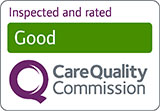Education Health Care Plans and the Local Offer
If your child has a high level of support needs and wishes to continue in education, they may require an Educational, Health & Care plan (EHCP) in order to ensure the correct package of support is available to meet their future needs. High support needs will often mean that input from specialists in the areas of education, health and care will be essential.

There is a collaborative process to follow to have an EHCP drafted and agreed. The local authority has responsibility over EHCP decisions for placements although your future placement choice can be expressed.
In September 2014, The Children and Families Act 2014 became Law. This Law has empowered children, young people and their families to be fully involved with all decisions and discussions regarding their SEN provision and plans for their future.
The Education Health Care Plan (EHCP) is a legal document which sets out a description of your child's needs (what he or she can and cannot do) and what needs to be done to meet those needs by education, health and social care.
Who can make a referral for an EHCP assessment?
The following people have a specific right to ask a local authority to conduct an education, health and care needs assessment for a child or young person aged between 0 and 25:
- the child's parent
- a young person over the age of 16 but under the age of 25
- a person acting on behalf of a school or post-16 institution (this should ideally be with the knowledge and agreement of the parent or young person where possible)
In addition, anyone else can bring a child or young person who has (or may have) special educational needs to the attention of their local authority, particularly where they think an education, health and care needs assessment may be necessary. This could include, for example, foster carers, health and social care professionals, early years practitioners, youth offending teams or probation services
What do you need to do next?
- Speak to your child’s school and ask how they are progressing EHCPs to support ongoing transition to the next provider
- Speak to your child’s college and ask how they are progressing EHCPs to support ongoing transition to the next provider
- If you are not in school/college get in touch with your local authority and request an EHCP
- Search on the local authority websites for ‘high needs support’, ‘local offer’, ‘EHC plans’ and ‘EHCP templates’ for more information. Local authorities have a duty to provide this information to families.
Find out more about transition from statements and Learning Difficulty Assessments (LDAS) to Education, Health and Care plans (EHC plans) here.
The Local Offer
The Children and Families Act requires every local authority to produce and publish a list of services available to children and young people. This list is called the ‘Local Offer’.
As well as including education, health and care services that are local geographically, the ‘Local Offer’ should also include information regarding services that are outside of the immediate catchment area but who offer specialist services in response to a local need.
Based in Birmingham, Queen Alexandra College (part of the Queen Alexandra Charity) is able to provide education and support for students from across the country and should therefore be included in the Local Offer for all local authorities.
Section 41: Secretary of State Approved List
Section 41 of the Children and Families Act 2014 allows the Secretary of State to publish a list of approved independent educational institutions, independent special schools and post-16 institutions. Institutions can only be included on the list with their consent and the list is reviewed on a termly basis.
QAC is named as an approved institution on this list and as such this enables young people and/or parents to specifically name us on the Education Health Care Plan as their preferred provider. If an organisation is named on the EHCP and approved, then the local authority is obliged to fund the placement. Subsequently, this can empower young people and their families to have their say about their future.
Parent and carer’s guide to the DfE’s SEND funding consultation
Find out more about the Department for Education's SEND funding consultation here.
The National SEND Tribunal Trial: What does it mean for families?
The two year national trial extends the powers of the First-tier Tribunal (SEND) to make non-binding recommendations on the health and social care aspects of Education, Health and Care plans, in addition to the educational aspects. For more information about this, please click here.












